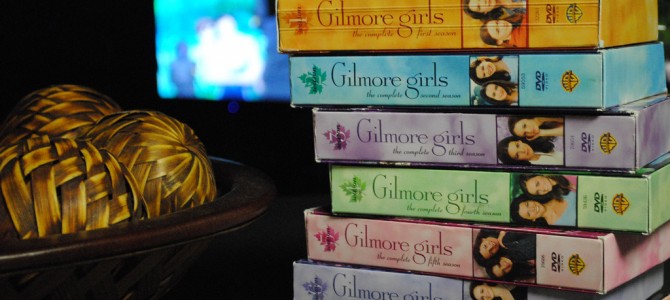A month ago, the texts from my friends began rolling in: “‘Gilmore Girls’ is coming to Netflix!”
Judging by the “Most Popular on Netflix” feature, my friends and I aren’t the only ones excited that the former WB show is now available for unlimited binge-watching.
“Gilmore Girls,” which aired from 2000-2007, focused on Lorelai Gilmore and her 16-year-old daughter, Rory, as well as Lorelai’s wealthy, appearance-obsessed parents. Lorelai ran away from her parents after having Rory at the age of 16. Sixteen years later, Lorelai and Rory seem more like best friends than mother and daughter, while Lorelai has a fraught, difficult relationship with her parents.
Yes, the Gilmore Girls Criticize Republicans
As a teen, I loved the mother-daughter relationship at the center of the show, its quirky characters and rapid-fire, pop-culture-laced dialogue. As I re-watch it, though—and I’m moving through episodes at an embarrassingly fast pace—I’ve become caught up in the show’s conservative values.
It’s not that Lorelai and Rory are political conservatives; they’re definitely not. They regularly mock Lorelai’s parents’ Republican views and the Bush administration. Rory considers writing a college application essay praising Hillary Clinton. The Gilmore Girls aren’t cultural conservatives, either. They make fun of the notion of sit-down, home-cooked family dinners, share trashy celebrity gossip magazines, and listen to Metallica together.
In spite of this, “Gilmore Girls” espouses a conservative viewpoint, arguing that hard work, family, and community allowed its characters to thrive and develop lives they could be proud of.
Bootstrapping: The American Way
After running away from home with her infant, Lorelai takes a job as a maid at an inn. She runs circles around the other maids and eventually becomes the inn’s manager. After earning a community-college degree, Lorelai opens her own inn. Rather than settling for a life of dependency on her parents or a life at the bottom of the income ladder, she built a life for herself. It certainly wasn’t easy, but she did it.
The life Lorelai and Rory lead seems so normal that the show was criticized when it was first broadcast for glamorizing teen pregnancy. Lorelai and Rory live in a nice two-story house, regularly eat out and shop. But during the show’s early years, the show’s writers make it clear that wasn’t always the case. For years, the Gilmores lived in a one-room potting shed, used to store tools and landscape equipment, at the inn where Lorelai worked. The bathtub and bed were right next to each other. It’s hardly a life of glamour; and it was Lorelai’s dedication to making a better life that got them out of the potting shed.
Rory, too, benefits from Lorelai’s work ethic. Her mother’s support leads her to graduate from Yale University and land a job as a political reporter. It’s not just Lorelai’s work ethic though, but, her unending support for her daughter (she buys a 6-year-old a Harvard sweatshirt to nurture her Ivy League dreams) that helps Rory become a success story.
Conservative, But Not Puritanical
“Gilmore Girls” is an aspirational story of how hard work can create a better life. Lorelai and Rory certainly have built-in advantages, most notably Lorelai’s wealthy, estranged parents, who pay for Rory’s private-school tuition. Rory, though, earned her acceptance to her elite high school thanks to her own work ethic and Lorelai’s constant refrain that she will attend an Ivy League college. As their relationship grows, Rory doesn’t just depend on her grandparents for financial support, but for emotional support. Their family becomes a tighter, more functional unit, and all generations become better for it.
For a show about teen pregnancy, “Gilmore Girls” espouses some traditional attitudes toward sex. Lorelai discourages her daughter from having sex in her teen years. She gleefully says, “I got the good kid,” when she finds out one of Rory’s high-school friends had sex and Rory had not. When Rory does lose her virginity to her married ex-boyfriend, Lorelai is explosively angry, lecturing Rory on the importance of marriage. However, when Rory begins having sex with another, long-term partner, the pair are able to have awkward, but honest, conversations.
Lorelai later doesn’t hide disapproval after finding out her daughter is involved in “no strings attached” sexual relationship. “Gilmore Girls” shows Rory struggling with the nature of this relationship: she cries to her mother, asking, “Why doesn’t he like me?” When Rory’s relationship becomes exclusive, she and her mother are much happier. The show argues that sex should be reserved for special, significant relationships. Sex, it says, can happen out of marriage, but should be reserved for serious relationships, not just treated casually.
The show’s treatment of sex is conservative, but not puritanical. It’s actually a good way of looking at the show in general. “Gilmore Girls” advocates conservative values, but not in an over-the-top, or aggressive way. It coats traditional, conservative values in a Progressive sheen.









